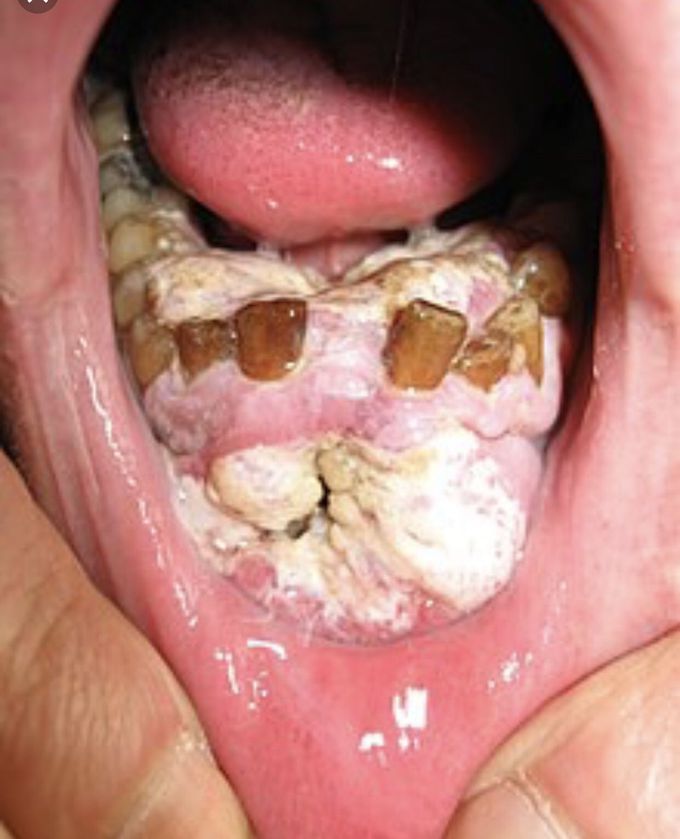


Oral cancer😮😮
Historically the death rate associated with this cancer is particularly high not because it is hard to discover or diagnose, but due to the cancer being routinely discovered late in its development.Often oral cancer is only discovered when the cancer has metastasized to another location, most likely the lymph nodes of the neck. Prognosis at this stage of discovery is significantly worse than when it is caught in a localized intra oral area. Besides the metastasis, at these later stages, the primary tumor has had time to invade deep into local structures.Oral cancer is particularly dangerous because in its early stages it may not be noticed by the patient, as it can frequently prosper without producing pain or symptoms they might readily recognize, and because it has a high risk of producing second, primary tumors. This means that patients who survive a first encounter with the disease, have up to a 20 times higher risk of developing a second cancer. This heightened risk factor can last for 5 to 10 years after the first occurrence. There are several types of oral cancers, but around 90% are squamous cell carcinomas. It is estimated that approximately $3.2 billion is spent in the United States each year on treatment of head and neck cancers. (2010 numbers)

